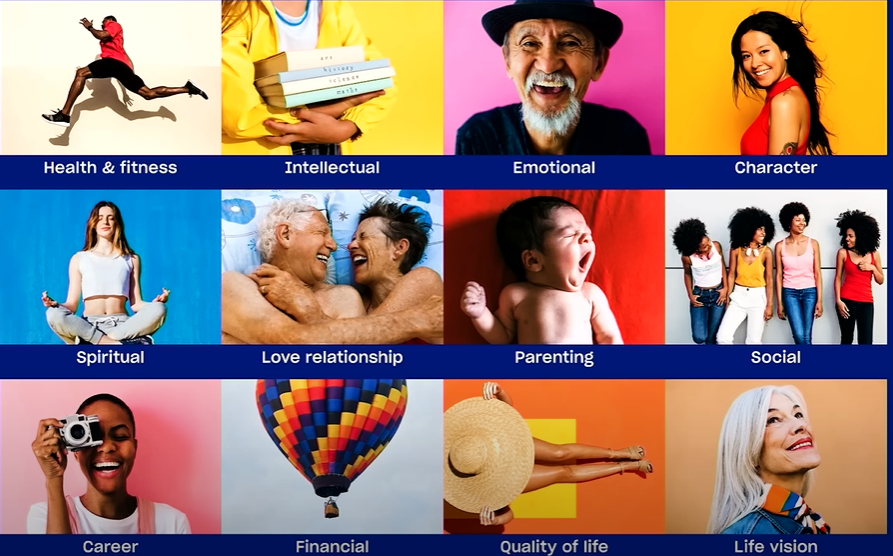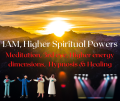
This article’s reviews video transcript of a speaker presenting a mystical interpretation of the Christmas story. He argues that the traditional narrative is mythology, symbolizing an inner spiritual awakening. This awakening involves rejecting societal pressures, particularly religious dogma and violence, to find inner peace and Christ consciousness. The speaker encourages listeners to achieve this spiritual rebirth through meditation and introspection, ultimately replacing worldly attachments with a connection to the divine. He connects this inner transformation with the traditional Christmas imagery, emphasizing the importance of seeking truth through self-reflection rather than religious institutions. The speaker also shares personal anecdotes and a poem to further illustrate his points.
- What is the main message of the speaker regarding Christmas?
- The speaker argues that Christmas is not about the external, commercialized holiday we celebrate but is a deeply personal, internal experience. It’s about the potential for the “Christ child” to be born within each individual, symbolizing a transformation of consciousness, rather than an historical event. He urges listeners to move away from the distractions of materialism and societal obligations to find this true meaning within.
- How does the speaker reinterpret the traditional Christmas story?
- The speaker emphasizes the mythological nature of the traditional story of Jesus’ birth. He interprets the various elements symbolically. The stable is within us, a quiet place amidst our animal instincts. The shepherds are us, watching our thoughts. The wise men represent wisdom from the right side of our brain. The Virgin Mary symbolizes pure consciousness, unstained by human thought, and the star represents the higher light entering through our pineal gland. Thus, the story is not a historical event but a metaphor for inner transformation.
- What is the “stable” and its significance?
- The “stable,” in the context of this talk, is not a literal place but a state of being or consciousness within our own minds. It represents the quiet, still place within us where the “Christ child” (a higher state of consciousness) can be born. It’s contrasted with the “inn,” which is our busy, analytical mind, full of worldly concerns and not a suitable place for this birth.
- What does it mean to be a “shepherd” in this context?
- The speaker uses the metaphor of shepherds watching over sheep to describe our own minds. Just as shepherds watch over their flocks, we are called to observe our thoughts and feelings without judgment. This act of self-observation is a critical part of allowing the “Christ child” to be born within us. It is through the observation of our thoughts that we can begin to create space for inner transformation.
- Why does the speaker advocate for separating from organized religion and government?
- The speaker claims that organized religion and government are distractions from the internal process of experiencing Christ Consciousness. He argues that these external forces encourage violence, war, and the pursuit of power, which are contradictory to the teachings of Jesus. By separating from these external allegiances, individuals can focus on their personal relationship with the divine, as it exists within.
- What does the speaker mean by “following Jesus” versus “following Christ”?
- The speaker differentiates between following Jesus as the historical teacher and obtaining “Christ Consciousness” as the ultimate goal. He asserts that one becomes “Christ” through following the teachings of Jesus, not through allegiance to any dogma, religion or doctrine. Following Jesus’ actions and teachings, the speaker asserts, allows the higher state of “Christ Consciousness” to awaken within the individual.
- How does the speaker define Christ Consciousness?
- “Christ Consciousness” is defined as a new level of awareness and understanding, an enlightened state that is achieved through introspection and following Jesus’ teachings. It means embodying the love, compassion, and peace that Jesus demonstrated, transcending worldly concerns and ego-driven behaviors.
- What is the practical advice offered by the speaker to achieve a meaningful Christmas experience?
- The speaker urges listeners to turn their attention inward. He suggests meditating on Jesus’ teachings, watching their thoughts as “shepherds” would, separating from religious dogma and governmental loyalties, and focusing on the quiet “stable” within their hearts. By doing so, the speaker believes they will allow for the virgin birth of the Christ child in their own hearts. It involves a conscious choice to abandon one’s old ways and welcome the birth of this transformative energy. This entails embracing the core teachings of love, peace and personal responsibility, rather than external rites or rituals.

Rediscovering Christmas: An Inner Awakening
Subject: Analysis of Key Themes and Ideas in “597 Christmas Within You”
Introduction:
This document analyzes the core concepts presented in the transcript “597 Christmas Within You,” a discourse centered around reinterpreting the Christmas story and its relevance to personal spiritual awakening. The speaker challenges conventional religious interpretations and calls for a deeply personal and internal experience of Christ’s birth.
Key Themes and Ideas:
- The Commercialization vs. Spiritual Essence of Christmas:Critique of Consumerism: The speaker contrasts the genuine feeling of connection and love associated with the Christmas season with the “insane buying” and obligatory gift-giving that often overshadow it. He describes people in shopping centers as “zombies,” emphasizing the mindless, driven nature of holiday shopping.
- Quote: “it’s just the insane buying that is so contradictory to the feeling that you you get that feeling this time of year of uh you know wanting to socialize with people and be with people but what ruins it is this need to to buy.”
- Yearning for Authentic Connection: He expresses a desire for the focus to shift from material exchange to genuine human connection and being with one another.
- Quote: “how wonderful if we could experience the feeling that we feel now towards one another without this obligatory feeling we have to buy something the need just to be with one another just to be a maybe to sing and you know just have fun with one another without spoiled by society’s imposed need to buy things”
- Reinterpretation of the Christmas Story as Mythology and Metaphor:
- Mythological Nature: The speaker declares the traditional story of Jesus’s birth in a stable as “mythology,” stating it “never happened” historically as literally presented. This initial shock is used to reframe the story to something more relevant.
- Quote: “the story of the birth of Jesus in a stable is mythology it’s a mythological story it never happened”
- Internalized Spiritual Meaning: The speaker interprets each element of the Christmas story as metaphors for an inner spiritual journey. The stable represents the quiet part of the mind amidst animalistic instincts, the Virgin represents “pure consciousness,” the shepherds represent “us watching our thoughts,” the wise men are the wisdom that comes from the right side of the brain, and the star is the higher light which follows all of us from above.
- *Quote: “we are the Shepherds the Sheep are our thoughts… the wise men that come to us from the East is the new thoughts the new information… the Virgin is pure Consciousness which is unstained by human thought” *
- The Importance of Inner Transformation and “Christ Consciousness”:
- Becoming the Story: The speaker urges listeners not just to read about Christmas but to “become the story.” He emphasizes the importance of actively giving “birth to the Christ” within one’s own being.
- *Quote: “instead of reading about Christmas become Christmas give birth to the Christ in the stable inside here say moving out of the in realizing that the brain which does all the business cannot be a place where the child can be born”
- Christ as a State of Consciousness: He makes a key distinction between Jesus and Christ, suggesting Jesus is the teacher, and “Christ” is a state of consciousness achieved by following Jesus’s teachings.
- *Quote: “Jesus is the teacher Christ is the diploma… you follow Jesus and you become Christ”
- Seeking the Kingdom Within: The emphasis is on finding the kingdom of God “inside of you,” moving away from reliance on external religious authorities or practices.
- *Quote: “the kingdom of God is inside of you you don’t need any pastors you don’t need any religions you don’t need any governments the government is inside of you and that’s what Jesus teaches you that you find the kingdom of God inside yourself” *
- Rejection of Organized Religion and Patriotism:
- Critique of Christianity: The speaker is highly critical of organized religion, particularly Christianity. He argues that being a Christian hinders one’s ability to become “Christ,” suggesting a need to break free from dogma and tradition.
- Quote: “if you’re a Christian then it is impossible to be a Christ because once you accept yourself as a Christian you have barred yourself from being Christ.”
- Rejection of War and Violence: He extends this critique to patriotism, claiming it’s incompatible with following Jesus’s teachings. He advocates for a stance of absolute non-violence and love.
- *Quote: “you can’t you cannot be a patriot of the earth and be walking with God in Jesus Christ you can’t it’s impossible” *
- Focus on Jesus’s Teachings, not Interpretations: He stresses the importance of following the actual words and teachings of Jesus over interpretations by religious leaders.
- *Quote: “a follower of Jesus Christ means that you do what he says you do not do what any pastor says you do not do what any religion says but you find out what Jesus says” *
- Meditation, Inner Watching, and Separation from Thoughts:
- Single Eye and Meditation: The speaker emphasizes the need for meditation, described as “watching” with a “single eye,” to facilitate the inner birth of Christ consciousness.
- Quote: “you work with your single eye by watching and waiting you allow the glory of the Christ child to be born again within you”
- Separation from Thoughts: A crucial step in this process is separating oneself from the “thoughts of the mind,” achieving a state of “pure consciousness.”
- *Quote: “can you believe like Jesus that you had to separate from the thoughts of your mind to achieve this birth” *
- The Transformation and Liberation through Christ Consciousness:
- Removal of worldly burdens: When Christ is born within, “the government of your life” is taken away, burdens are lifted, and a state of peace is achieved.
- *Quote: “the government of your life is suddenly taken away the burdens lifted and placed on his shoulder as it says in Isaiah”
- Becoming One with the Divine: The goal of this process is becoming one with the divine, experiencing joy, and seeing the world with a new, enlightened perspective.
- Quote: “true conversion is not when a person becomes a Christian or a Jew or a Muslim or a Hindu true conversion happens when a person becomes Divine a Christ”
Conclusion:
“597 Christmas Within You” presents a radical reinterpretation of the Christmas story, urging a shift from external rituals and religious dogma to an internal spiritual awakening. The speaker promotes a direct relationship with the teachings of Jesus, emphasizing meditation, self-awareness, and the pursuit of Christ consciousness. The document promotes leaving old dogmas and beliefs, making a space for a new inner birth. The text stresses that personal transformation, rather than external observance, is the true essence of Christmas.


















0 responses on "Christmas Within You"